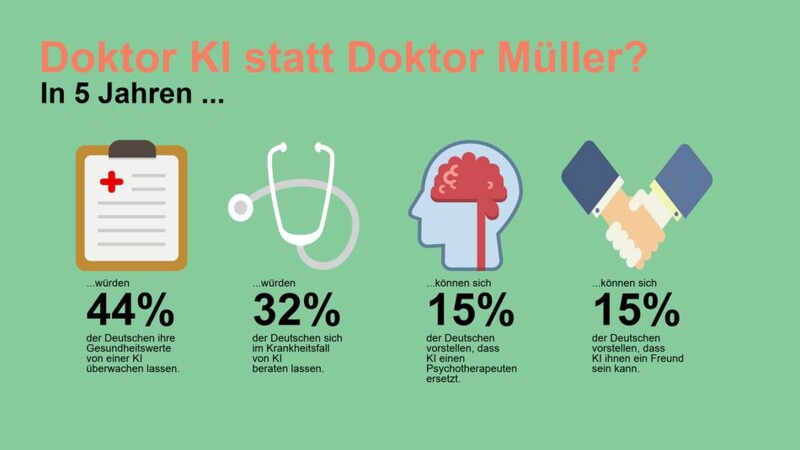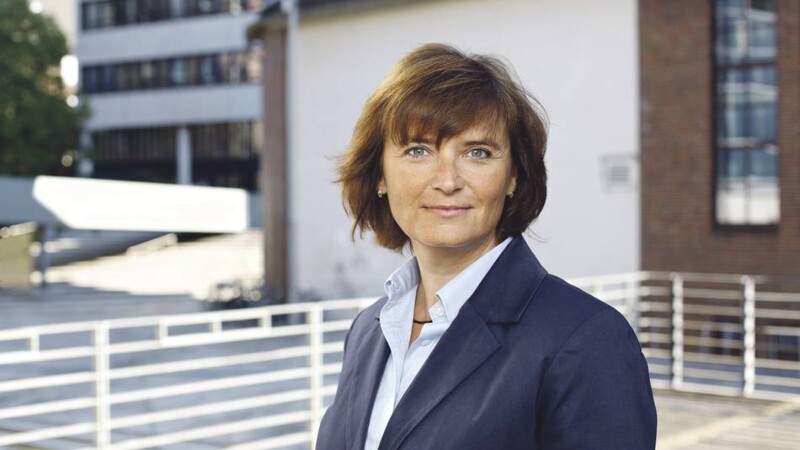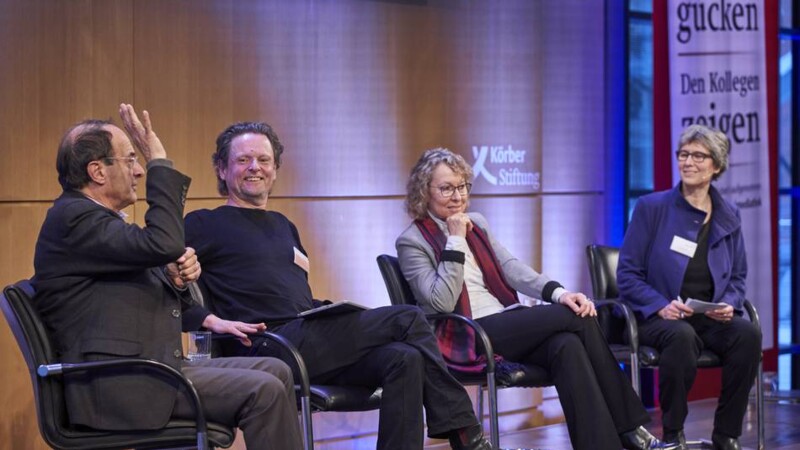One of the prime movers behind software for online shopping, talking to your car or finding love hails from St. Pauli namely www.freiheit.com. The company, whose name actually means “freedom”, develops digital products, designs new business models in close co-operation with its customers and assists them with digital transformation. Founded in 1999 by Claudia Dietze and Stefan Richter, 52, more than a hundred computer scientists, physicists, mathematicians and merchants work there on “shaping the future”, as Richter noted.
Artificial intelligence is pivotal to a prosperous future and the German government is keen to ensure that its AI strategy will prepare Germany’s economy for any upcoming challenges. Now, most Germans associate opportunities rather than risks with artificial intelligence, a study by the Bitkom digital association has found. Achim Berg, Bitkom President, stressed. “Artificial intelligence is the most important key technology of the coming decades. For the economy, AI means a new, zero hour. We must succeed in making the manifold opportunities of AI usable for all areas of life – from medicine to mobility to education.” Until now, the United States has been the main driver of this key technology. However, several German and Hanseatic companies are becoming increasingly active in these technological innovations.
Digital products from St. Pauli
Better than ever
“I am convinced that we will experience breathtaking technological changes in the next few years,” Richter stressed, and is looking forward to this future. Richter’s enthusiasm is founded in the past. “All the parameters show that things have been getting better and better all over the world over time. People live longer, the number of deaths due to war, violence and disease has decreased, as has poverty – and this is mainly a result of technological development.”
More productivity, prosperity and justice thanks to AI
Richter views artificial intelligence as the key driver of a positive future. “AI functions as a new lever with which mankind can generate more prosperity and more justice through more productivity. And that is absolutely needed. “Especially in affluent regions where we are faced with declining birth rates. How else are fewer people supposed to achieve more wealth? Only digitalisation, automation and AI can make this possible. Today, the data required for AI is generated by modern software as a by-product, so to speak, and the conversion of big data into smart data is improving all the time. “Business is, and has always been, a complex system. But with a growing and well-structured volume of data, digital change can be managed better for everyone,” said Richter.
Artificial expansion of the brain
At present, www.freiheit.com is working, for instance, on connected cars for Daimler and VW and on a machine learning project for Hamburg Süd/Maersk shipping. In terms of predictive maintenance, the intelligent system uses performance and temperature curves to detect when defects are imminent in the refrigerated containers. Richter is also keen to launch a project on artificially expanding the brain, which is basically the next logical step in social evolution, but a very fascinating one. Richter added: “We are already connected with other people all over the world and have access to knowledge and information like never before. The integration of technology into our bodies is just another way of networking.”
Employees from all corners of the globe
Richter and Dietze founded www.freiheit.com to boost these developments. Dietze manages the commercial side of the business while Richter is responsible for coding. “I have always wanted to programme and work with passionate others on projects that make our world a better place.” This approach helps recruit staff as digital natives prioritise meaningful work. “The really good people go where they learn the most. We now have great employees from all over the world,” Richter noted. However, luring Spaniards and Portuguese from their home countries was no easy task. Eventually, the company opened a branch in Lisbon. The weather also played a role therein, Richter revealed. “We love Hamburg, but we have always said that if we move abroad, then to a place where the weather is better.”
ys/pb
Sources and further information
Read also the other reports in our series:
Part 1: Artificial intelligence – a tool not a mind
Part 2: Algorithms for MRI images
Part 3: ‘My colleague, the robot’ a popular member of staff?
More
Similar articles

No need to fear artificial intelligence

Five promising fields for AI in medicine
